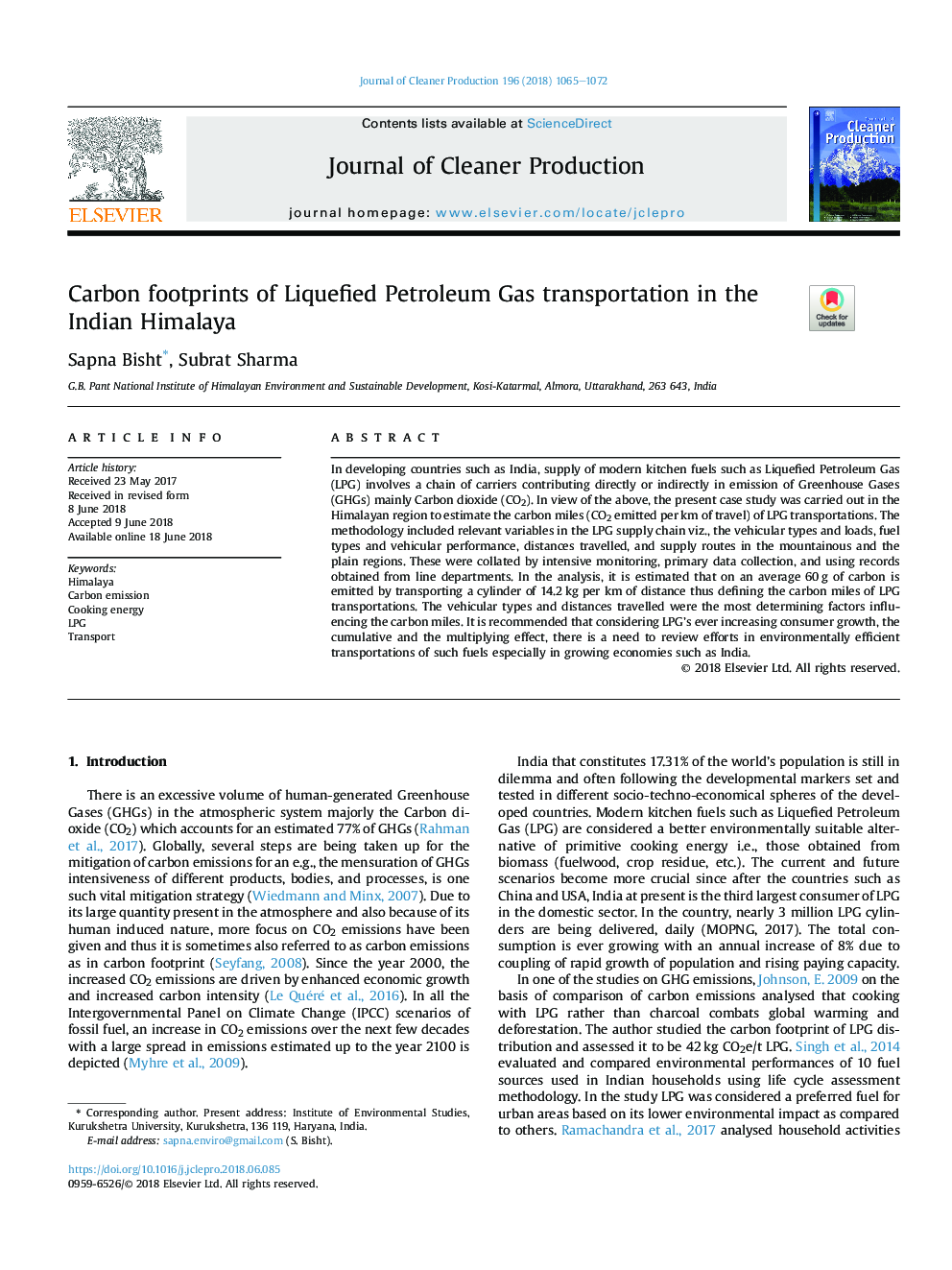| Article ID | Journal | Published Year | Pages | File Type |
|---|---|---|---|---|
| 8094079 | Journal of Cleaner Production | 2018 | 8 Pages |
Abstract
In developing countries such as India, supply of modern kitchen fuels such as Liquefied Petroleum Gas (LPG) involves a chain of carriers contributing directly or indirectly in emission of Greenhouse Gases (GHGs) mainly Carbon dioxide (CO2). In view of the above, the present case study was carried out in the Himalayan region to estimate the carbon miles (CO2 emitted per km of travel) of LPG transportations. The methodology included relevant variables in the LPG supply chain viz., the vehicular types and loads, fuel types and vehicular performance, distances travelled, and supply routes in the mountainous and the plain regions. These were collated by intensive monitoring, primary data collection, and using records obtained from line departments. In the analysis, it is estimated that on an average 60â¯g of carbon is emitted by transporting a cylinder of 14.2â¯kg per km of distance thus defining the carbon miles of LPG transportations. The vehicular types and distances travelled were the most determining factors influencing the carbon miles. It is recommended that considering LPG's ever increasing consumer growth, the cumulative and the multiplying effect, there is a need to review efforts in environmentally efficient transportations of such fuels especially in growing economies such as India.
Related Topics
Physical Sciences and Engineering
Energy
Renewable Energy, Sustainability and the Environment
Authors
Sapna Bisht, Subrat Sharma,
